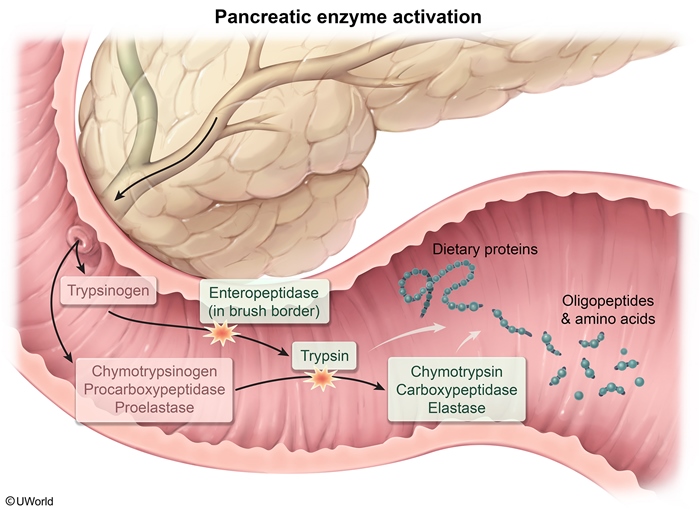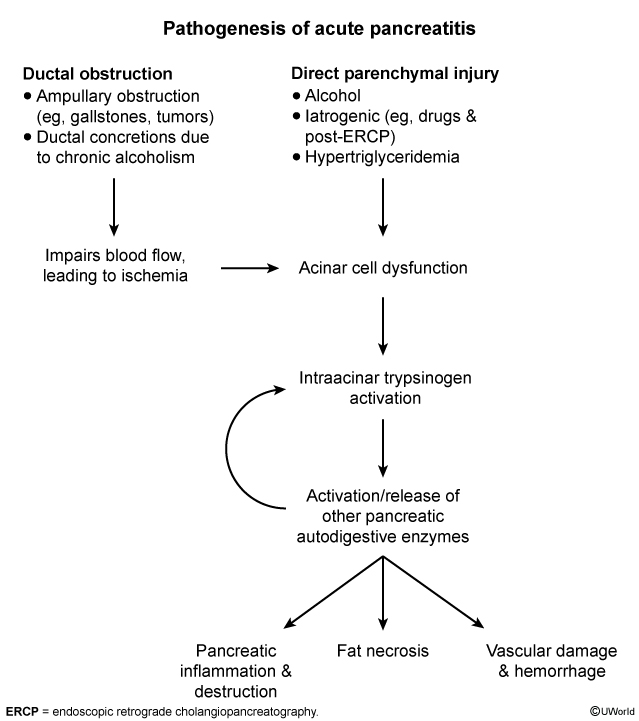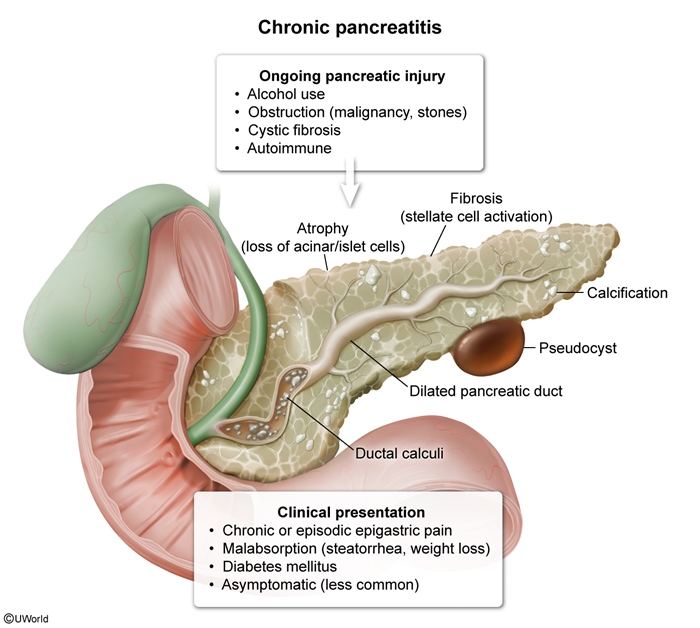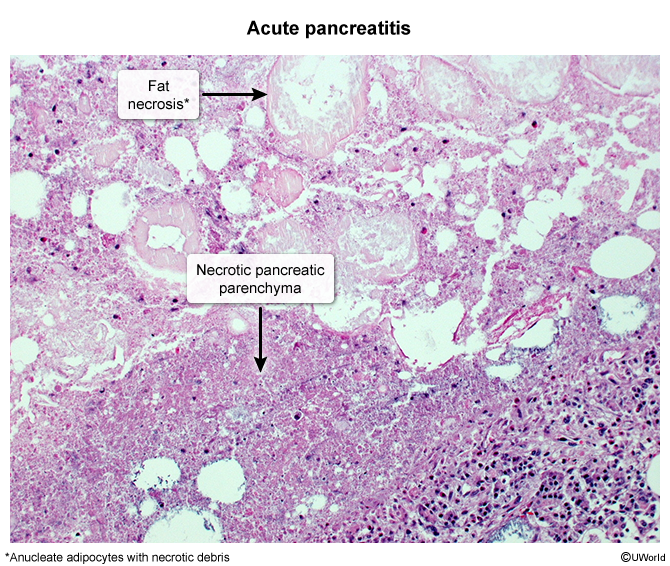Pancreatitis
Article Sections
Introduction
Pancreatitis is an inflammatory condition of the pancreas that can present as either acute or chronic. Previously considered distinct conditions, acute pancreatitis and chronic pancreatitis are now understood to lie on a continuum of interrelated disorders and share overlapping characteristics. Acute pancreatitis is characterized by a sudden onset of inflammation, whereas chronic pancreatitis involves long-term inflammation leading to irreversible damage. Both forms can lead to significant morbidity and complications if not promptly diagnosed and managed.
Pathophysiology
Pancreatic enzymes (Figure 1), except for amylase and lipase, are synthesized and secreted into the duodenum as inactive forms (proenzymes or zymogens) to prevent autodigestion of the pancreas. One of these proenzymes, trypsinogen, is converted to active trypsin (by duodenal enterokinase), which has a central role in proenzyme activation.
Continue Learning with UWorld
Get the full Pancreatitis article plus rich visuals, real-world cases, and in-depth insights from medical experts, all available through the UWorld Medical Library.
Unlock Full AccessFigures



Images
